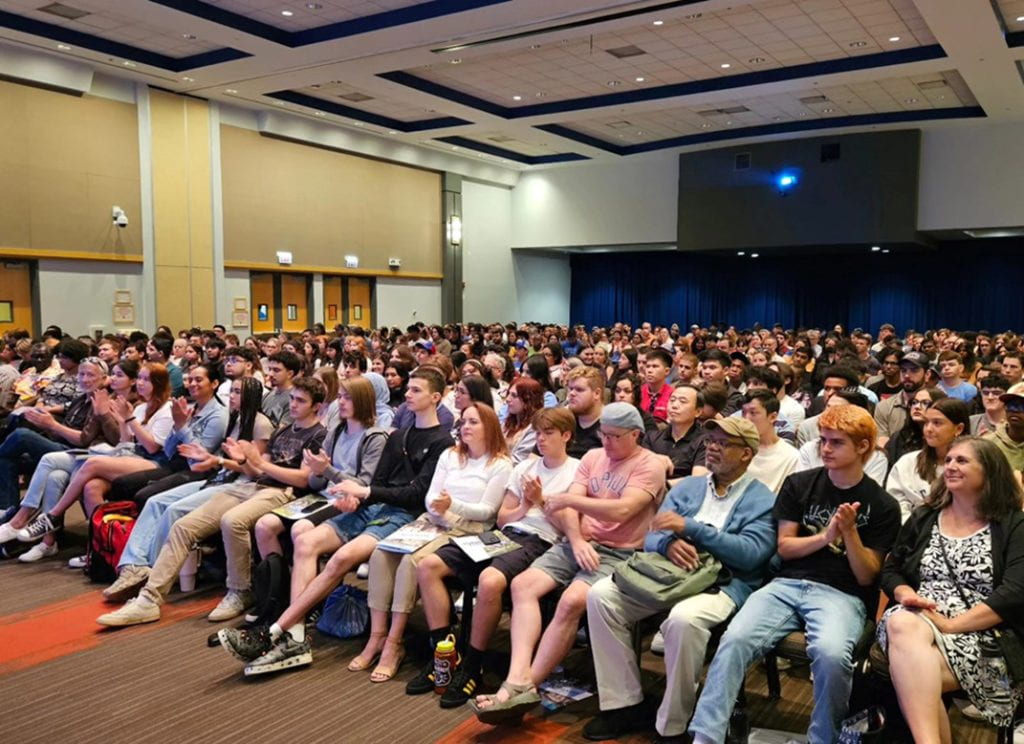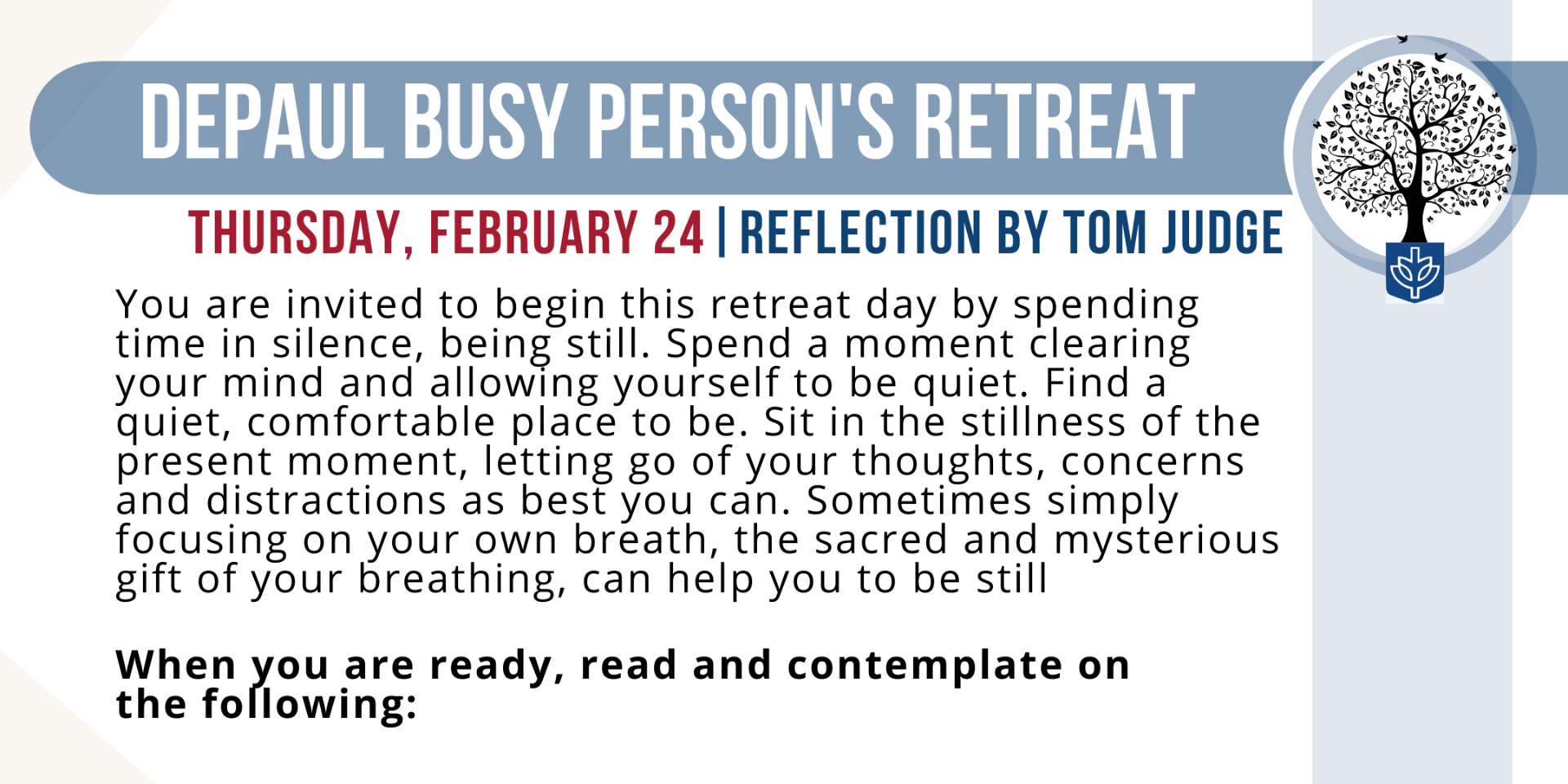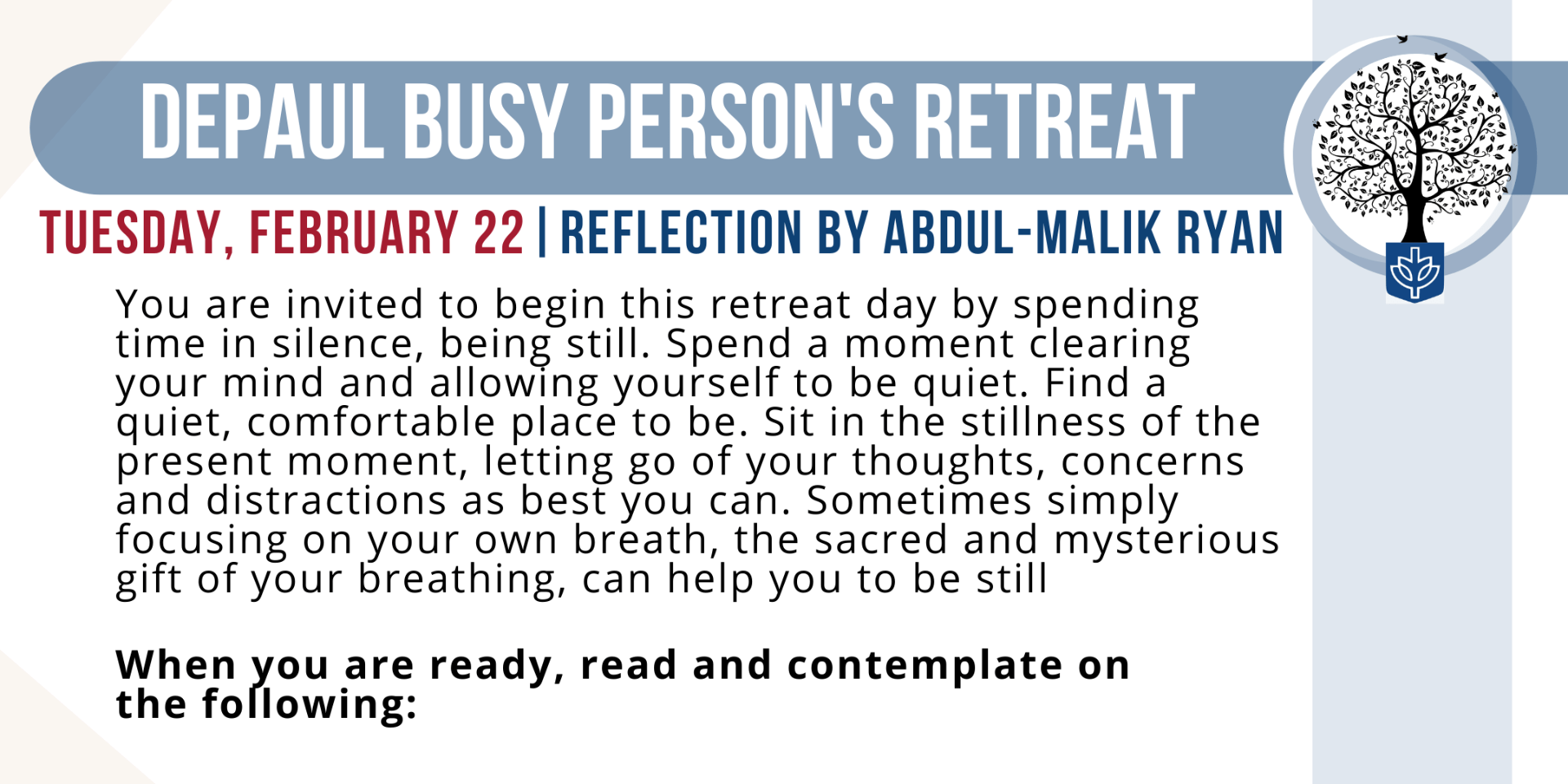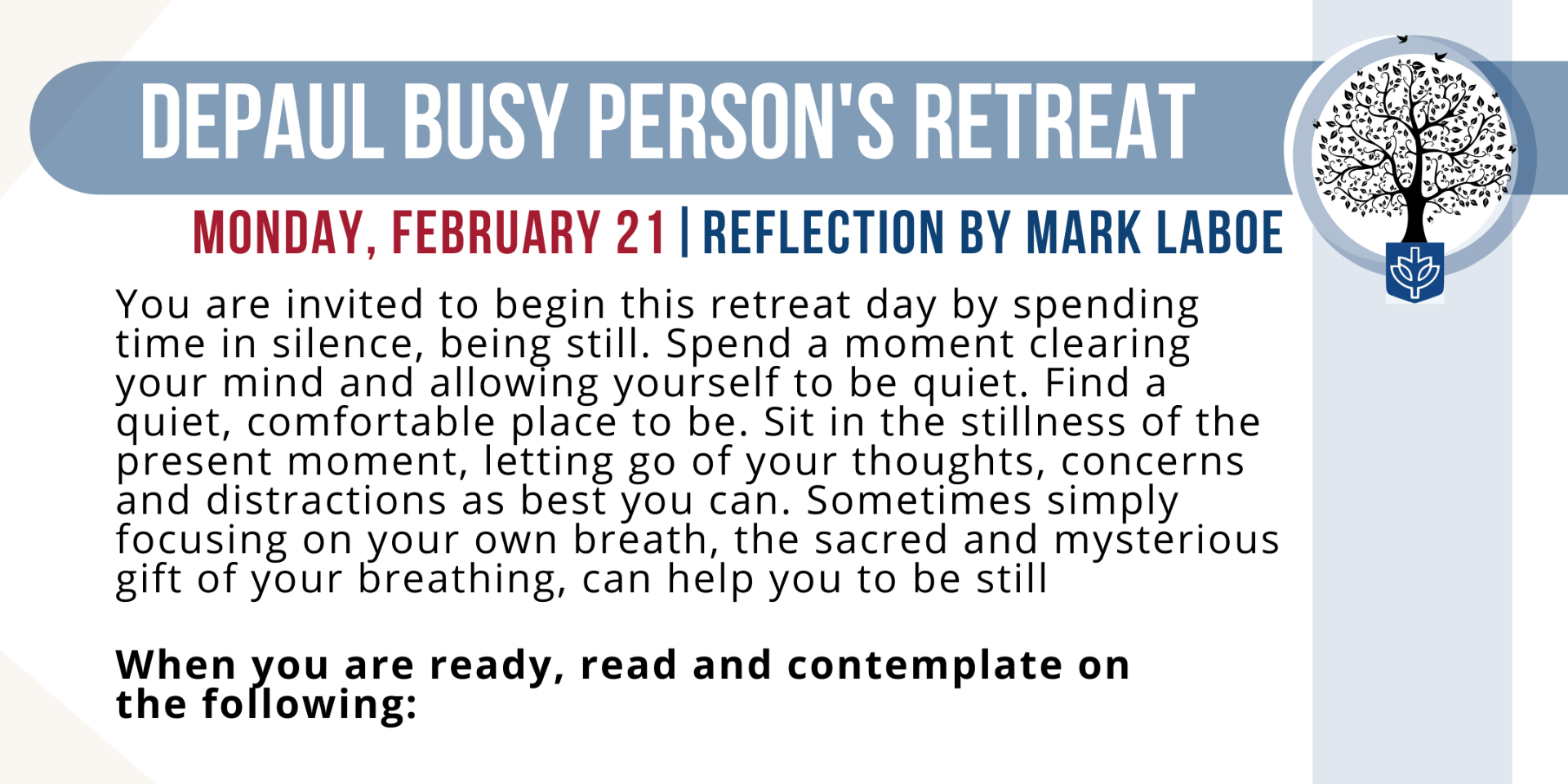
“Another effect of charity is to rejoice with those who rejoice. It causes us to enter into their joy.” – Vincent de Paul [1]
Recently, I spent time in the bleachers of Sullivan Athletic Center, cheering on our women’s volleyball team as they faced the Huskies of Northern Illinois. Though I don’t really understand the finer points of the game, I love the intensity, pace, and athletic prowess that are fundamental to volleyball. And, I have tremendous admiration for the competitiveness and teamwork that are so critical to any sport at the elite collegiate level.
There is something else I love about volleyball: the behavior of the players on the court after each point. In those moments, if DePaul wins the rally with a spike or block or great serve, the players quickly gather in something resembling a group hug, rejoicing with the one who made the winning play and celebrating the moment before resuming the set. If DePaul loses the point, the response is very similar— a brief group huddle that is not celebratory but instead seems to communicate support to the player who may have missed a shot and also helps the team refocus for the next point. In both scenarios, despite the different outcomes, players are empathizing with one another. In those few moments, they are strengthening their bonds as teammates and pushing themselves to work together to win the next point and, ultimately, the match.
This simple demonstration of unity and devotion by our volleyball players seems to resonate with the quote that inspired today’s reflection. In the conference from which this quote is taken, Vincent de Paul is addressing members of the still-developing Congregation of the Mission (the Vincentian priests). He is urging them, for the sake of their mission’s ultimate success and sustainability, to ground their communities in virtue, particularly the virtue of charity (or what we might call today love). Vincent believed that the presence of a generous amount of charity within a community would lead to its members being able to “enter in” to the hearts of one another, to rejoice with those members who rejoice and grieve with those who are saddened. In other words, charity would create a community where there is genuine empathy, ever-present support, and abundant compassion among its members for one another.
When I have the privilege of visiting with university colleagues and learning what they value most about being at DePaul, their answers are almost always animated by their gratitude for our community. They speak of the affection they feel for treasured coworkers who are also good friends, the admiration they have for talented colleagues who diligently work on behalf of students, the enjoyment they take at campus-wide events that unite us in celebration, ritual or, simply, fun. On a large-scale and in small, personal ways—and even on a volleyball court—evidence abounds that DePaul, at its best, is a living example of the community grounded in love that Vincent de Paul set out to establish.
But, being a place where the lived norms are empathy, support, and compassion is not easy to achieve or maintain, nor does it automatically result from having a Vincentian identity. To be a community of charity needs to be made a priority both institutionally and individually. Then, it must be backed up by commitment, hard work, humility, equity, shared goals, cordial relationships, placing the good of the whole over that of the individual, and so forth. Although the challenges are real, DePaul has a history of being this type of loving community and a mission that supports this going forward.
Reflection Questions:
- Are there people you know at DePaul who have recently accomplished something of note or celebrated a joyful experience? Or, alternatively, suffered a loss or are going through a particular struggle? Consider reaching out to these people to offer congratulations and celebration or support and sympathy.
- Where have you witnessed examples – either large or small – of empathy, support or compassion that help to make DePaul a more caring community? How might you be called to contribute to or build upon these examples?
Reflection by: Tom Judge, Assistant Director and Chaplain, Faculty and Staff Engagement, Division of Mission and Ministry
[1] Conference 207, “Charity (Common Rules, Chap. II, Art. 12),” May 30, 1659, CCD, 12:222. Available online at https://via.library.depaul.edu/vincentian_ebooks/36/.













